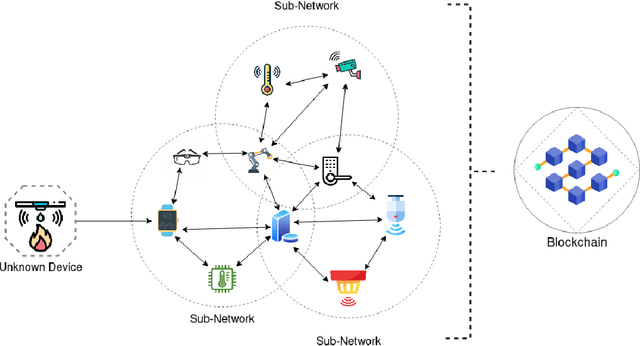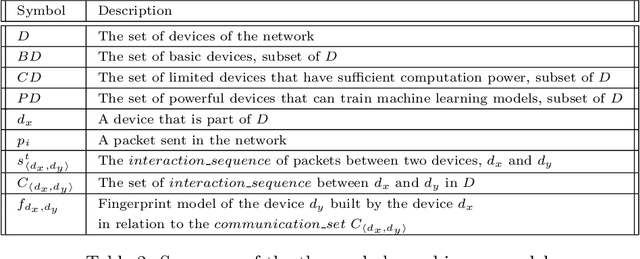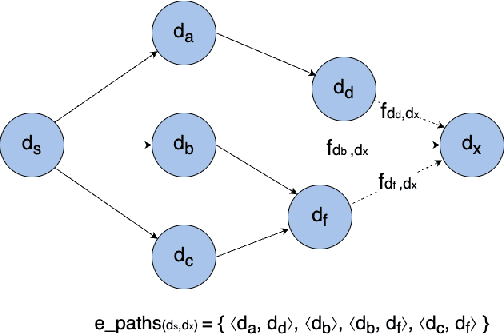A Novel IoT Trust Model Leveraging Fully Distributed Behavioral Fingerprinting and Secure Delegation
Paper and Code
Oct 02, 2023



With the number of connected smart devices expected to constantly grow in the next years, Internet of Things (IoT) solutions are experimenting a booming demand to make data collection and processing easier. The ability of IoT appliances to provide pervasive and better support to everyday tasks, in most cases transparently to humans, is also achieved through the high degree of autonomy of such devices. However, the higher the number of new capabilities and services provided in an autonomous way, the wider the attack surface that exposes users to data hacking and lost. In this scenario, many critical challenges arise also because IoT devices have heterogeneous computational capabilities (i.e., in the same network there might be simple sensors/actuators as well as more complex and smart nodes). In this paper, we try to provide a contribution in this setting, tackling the non-trivial issues of equipping smart things with a strategy to evaluate, also through their neighbors, the trustworthiness of an object in the network before interacting with it. To do so, we design a novel and fully distributed trust model exploiting devices' behavioral fingerprints, a distributed consensus mechanism and the Blockchain technology. Beyond the detailed description of our framework, we also illustrate the security model associated with it and the tests carried out to evaluate its correctness and performance.
 Add to Chrome
Add to Chrome Add to Firefox
Add to Firefox Add to Edge
Add to Edge